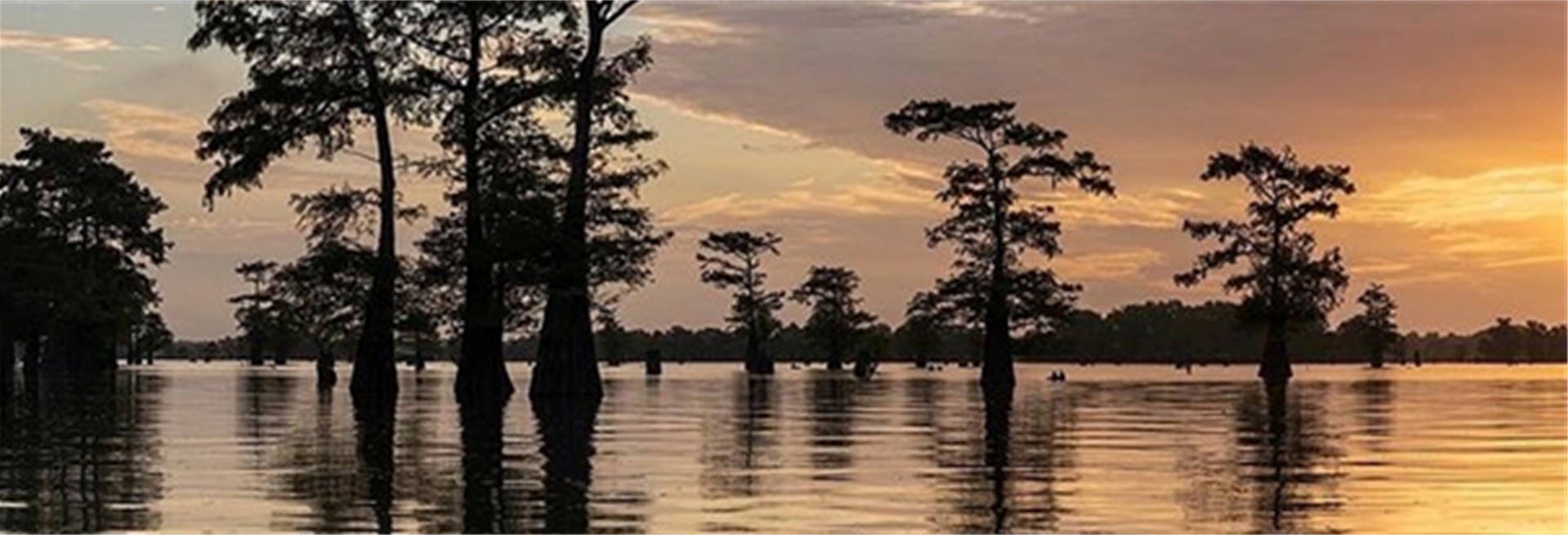
~ Delta Poetry Review ~
Samuel Prestridge
Just as a Huge Tree Falls into Minnesota's Lake Itsaka and Begins
Its Drift Southward on the Mississippi, an Underwater Welder Talks
to me about Diving, Zero Visibility, and the Threat Imposed by
Neutral Buoyancy (Greenville, Mississippi)
After his wife left, fled, or went back home to
give birth,
decided not to come back, and didn't send word
of any issue, he never spoke of her, the child,
never tried to see the child, avoided anyone
who might ask. I sometimes thought of the kid,
soaking up
whatever his momma's people might say, soaking
up
whatever anger might be brought to bear in
meeting,
refusing to meet the father.
After she left, he spent spare time submerged
in the pool, testing diving gear. He liked to
see his shimmering, silver
breath, where bubbles hit or missed pretty girls
swimming by.
"You breathe," he said. "Whatever else is just
convergence."
If that's so, I said, why stay here? She's left.
You've stayed put.
Said back, "Big money diving in the Mississippi.
At depth, you can't see anything, water's so
muddy.
That kind of dark, you just work and breathe."
What worried him:
"A tree falls in the river, soaks two thousand
miles.
It soaks and sinks up until it doesn't sink or
soak.
Just heaves along, keeping whatever depth,
toward the Gulf.
A 1,000 pound trunk will soak up 2.5 times
its weight, gets here moving along at three
miles an hour—
fifteen-hundred joules of force, time it gets to
me."
Said, "Do the math. Won't see it coming. You
stop waiting
to die, go on with your welding, hope it's the
next guy's
look-to. If he's lucky, he'll never know what
hit him."
After an Impossibly Steep Hill in Yazoo City,
through Three Stoplights, to Where Wu Hor's Grocery Used to Be, then
Over the Humped-Up Railroad Crossing
. . .
the Delta begins, and the land's so flat you'll
see rubber miles
past whatever you sight. You'll come to believe
you've grown taller
than anything this side of the horizon, less and
except
road signs, bridges,
historical markers—impediments
made
by someone like you . . . which only makes you
taller still, taller
than trees edging fields, allowances made by
someone like you.
And you're taller still—so tall you stand
flat-footed, step across
the Yazoo, Big Black, Yockanookany, Sunflower
rivers,
the bayous Goshen & Choctaw. (Passing, dip a toe
in each . . .
just to say you did.) You're tall enough to
straddle fields, to watch
crop dusters buzzing your ankles, to gauge
disappearances,
the slow evaporations of Tchula, Midnight,
Panther Burn,
Drew, Alligator, Itta Bena, Ruleville.
Impossibly
tall now, you breathe the halo-drift, the dust
from known and unknown
graves—Robert Johnson, Jack Owens, Elmore
James, R.L. Burnside.
You draw conclusions. Taller than any arbiter,
you stride
west to Rosedale, where the river has receded,
and you stand
on the Mississippi River's bank. You're so tall,
you likely
can jump it with a running start; you're tall
enough to wade it
with impunity, to feel the prehistoric cold
sucking
both your feet into a muck for which there is no
referent.
Stand there long enough, the river may return, may take the ground
beneath your feet, however tall you've gotten.
It plays no role
in casual assumptions, will not be bound by any
faith.
The Mississippi plots shenanigans, keeps
insouciant
counsel, biding time, planning outrage. The
river does not choose.
It just goes its way, redefining scrabbled
bedforms, leaving
oxbows, cutbanks, point bars, fields of national
mud where nothing
wise grows.
Size yourself against the mudflat between the river
and a withering town, notable only in Johnson's
blues
for being on the riverside . . . which it isn't
anymore.
Wait there until dusk. The sunset makes the
Mississippi shine.
What were your expectations? What did you hope,
in coming here?
Samuel Prestridge
lives and works in Athens, Georgia. He has published work in
numerous publications, including
Literary Imagination, Style,
The Arkansas Review,
As It Ought To Be,
Poetry Quarterly, Appalachian
Quarterly, Paideuma,
The Lullwater Review,
Poem,
Juke Joint, and The Southern
Humanities Review. He is a post-aspirational man whose first
book, "A Dog's Job of Work," is seeking publication. He is currently
an Associate Professor of English at the University of North
Georgia.
| Archive | Submissions | About | News |